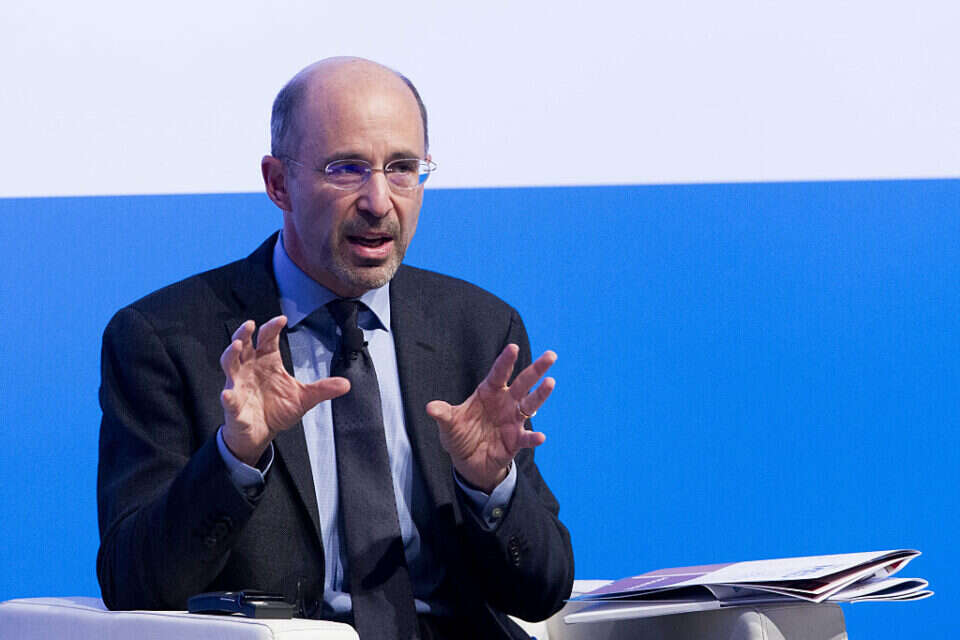A Dispute over Ukraine or NATO?
The three European countries have also warned that in the event of a Russian military attack, the flow of gas from Russia to Europe and the project under construction for sending Russian gas to Europe will be halted. However, Russia has been very public about its official position that there are currently no plans to attack Ukraine, but that it nonetheless plans to maintain a military presence on the border between the two nations. There are currently about 100,000 members of the Russian armed forces deployed on the border between Russia and Ukraine, supported by advanced kinds of tanks and other equipment. The U.S. Army and its NATO partners have not been idle either, and have been preparing Ukraine to put up military resistance by providing weapons of all shapes and sizes.
U.K. Foreign Secretary Liz Truss told the BBC One radio program last Sunday that “there is a real threat of invasion,” but it is “very unlikely” that British soldiers would participate in any war or engagement. She added that instead, the U.K. is sending military equipment and weapons to Ukraine and reinforcing its sanctions regime against Russia to prevent oligarchs close to the Kremlin from evading the restrictions: “We're doing all we can through deterrence and diplomacy to urge [Putin] to desist.” Truss said that further sanctions might target Russian financial institutions, energy companies, and those who are "key to ... the continuation of the Russian regime.” The other two major members of NATO, France and Germany, have maintained the same policy of political, economic and ultimately even military deterrence against Russia. Biden has also given the order for 8,500 U.S. special forces troops to deploy to the Eastern European countries neighboring Ukraine.
U.S. Secretary of State Antony Blinken also announced that a written proposal for resolving the conflict had been sent to the Russian Ministry of Foreign Affairs. Foreign Minister Sergey Lavrov confirmed that the proposal had been received and thoroughly reviewed, saying that it made some positive points. However, he emphasized that it did not address Russia’s most fundamental complaints and demands, and that it is ultimately Putin’s responsibility to make a decision on the matter and to issue any declaration of war. Putin himself has reiterated the demand that Ukraine not become a member of NATO, and that NATO must not deploy to the Russian border.
Altogether, the articulated positions and reports from both sides show that the dispute between Russia and the U.S. over Ukraine and its future is really about NATO expanding its presence to the Russian border and Ukraine’s formal membership in the alliance. In the most recent news reports, Biden has appealed to the Chinese government, asking it to intervene and help find a “political solution” to this crisis through dialogue with Putin. China has so far maintained its silence, unsurprisingly since China itself is embroiled in a political and military crisis with the U.S. over the issue of Taiwan, which like Hong Kong, China considers to be a rightful part of its own country. The tension over the presence of U.S. naval vessels in the South China Sea continues. Many Western military and political analysts have weighed in to say that, in fact, the current dispute between Biden and Putin could actually play into Chinese political, security and economic interests. Biden knows that, given the close relationship between China and Russia in international affairs, a U.N. Security Council proposal on the Ukraine crisis would also be fruitless; China and Russia possess veto power and would certainly exercise it against any such proposal.
We can assess what the immediate consequences of this situation will be. First, the existing state of relative security within Ukraine has been thrown into disarray and citizens are facing chaos and uncertainty over their future. Although official Western sources are trying to block reports about this internal chaos, journalists in Ukraine have reported that citizens are feeling extremely anxious, and those who can do so plan to leave the country or travel elsewhere in Europe. The current Ukrainian government is trying to control the turmoil in its country during the crisis, with support from the U.S., the U.K., France and Germany in the form of monetary assistance and shipments of vital goods.
Second, the ongoing dispute between Washington and Moscow has tied the hands of Western investors in the U.S. and Europe. It will have a tangible, negative effect on maintaining business relations with Russia and all of Eastern Europe.
Third, most international analysts agree that equilibrium in the international market is based on the balance of power among the world’s superpowers, i.e., China, Russia and the U.S. If this balance collapses, or if one of these powers were to go to war with another, it would trigger a calamity for international markets, in particular if the trajectory of such a war was uncertain.
Finally, Putin has so far maintained his position that NATO should not enter Ukraine. Nevertheless, one Ukrainian politician has said, “I know Putin well. His strategy is to announce a firm, unconventional position and maintain it until he sees that he has to take action, then in that final moment he retreats!”
Biden and Putin continue to boast about Ukraine and NATO’s presence there, but if this military posturing leads to war, not only will it throw international security and politics into turmoil, it will also set off significant change in other regions, including Eastern Europe and possibly even the Middle East. A war in Ukraine would not be a conventional war. It would be a great tragedy for most of the world.


